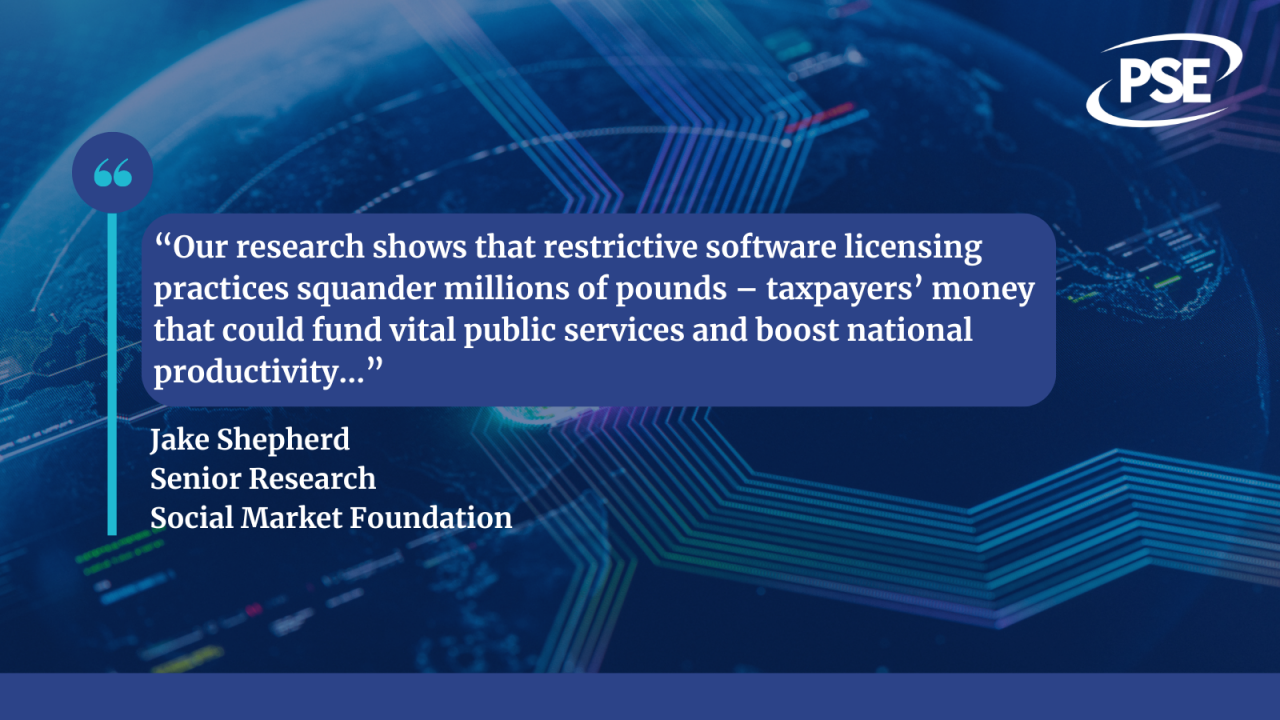A new report has identified how £300 million can be saved across the public sector, by addressing challenges around restrictive cloud licensing.
According to the report, published by the Social Market Foundation, has found that the public sector is set to waste at least £500 million on software licensing over the course of the next five years, as the restrictive rules inhibit them from switching easily between providers.
With the government mandating that organisations within central government adopt cloud services, as part of a drive for improving technological efficiency and savings, the SMF estimates that total cloud spending across government was £17.3 billion. With the restrictive rules around licensing, however, this raises costs as organisations are tied into contracts.
When compiling the report, the SMF interviewed a number of public sector IT professionals, with one talking about how there are positives to being under contract with one provider that can deliver a suite of solutions that work together, however this does mean that organisations are tied in and restricted from making cost savings.

Despite these restrictions also presenting challenges to organisations in the private sector, these effects are felt much more in the public sector as value for money is vital. With taxpayer funding paying for excess costs, crucial investment is being taken away from places where communities will get real, tangible benefits - with the overall impact being that technological, economic and security ambitions are being held back.
The £300 million of savings comes from the fact the SMF has estimated that ‘unfair’ licensing practices are inflicting around £60 million worth of economic harm per year, with this figure likely to be much higher when encompassing all software licenses.
Senior Researcher at the Social Market Foundation, Jake Shepherd, said:
“Our research shows that restrictive software licensing practices squander millions of pounds – taxpayers’ money that could fund vital public services and boost national productivity – while interviews with public sector IT professionals reveal the ‘real’ day-to-day operational costs. Software licensing isn’t just a technical issue – there’s an economic and social imperative to ensure it works smoothly and prevents needless wastage of public resources in the future.”
Image credit: iStock



















